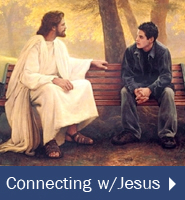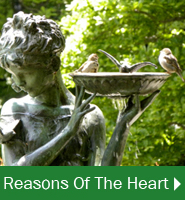Truth and Tolerance
Is it intolerant to believe you know the truth? Is it intolerant to say that what others believe is false? Is it intolerant to say that others are being intolerant? Hmmm.
The answer to these questions would depend on how you define tolerance or intolerance. The pre-politically correct definition of tolerance is succinctly captured by Webster’s 1827… TOL’ERANCE, n. [L. tolerantia, from tolero, to bear.] The power or capacity of enduring; or the act of enduring. Basically it meant to bear with or endure someone who held different views. So if my neighbor had a different faith, while believing him to be wrong, I would still fight to protect his right to freedom of religion, and I would treat him with kindness and respect as a neighbor…‘old’ definition of tolerance. Good stuff!
The ‘new’ definition of tolerance includes the old definition, but goes further… “interest in and concern for ideas, opinions, practices, etc., foreign to one’s own; a liberal, undogmatic viewpoint.” (Dictionary.com) It seems that to be tolerant now, I have to have an ‘undogmatic viewpoint’…in other words I must pay homage to the relativistic worldview that says ‘everyone’s truth claims are equally true and valid’. Upon admitting that my truth is no better than any other truth, I am expected to not only endure, but celebrate this diversity of ‘equally valid’ truth claims. Of course if I do believe my truth is truer than someone else’s, and I choose to not celebrate but rather oppose what I believe to be false or harmful, I am labeled a narrow minded, intolerant bigot, for having the audacity to hold a different worldview than “the enlightened tolerant ones”.
In my last article, What is Truth…Real or Relative, I surveyed students at the campus of CCBC Essex, and found that the majority of those interviewed believed that “truth is whatever one believes it to be”…relativism. For this article I asked the questions…Do you think your spiritual beliefs are true in the ‘fact’ sense of truth? If your beliefs were true, would that mean other spiritual beliefs that contradict or deny your beliefs would be false?
The results…most said they didn’t believe their beliefs were true in the fact sense of truth, and it follows that most also said contradictory beliefs would not be false.
What are we thinking? First of all, if we don’t really believe our beliefs are factually true, why bother to believe them? I am a Christian, and as such my faith is based upon the factual existence of Jesus of Nazareth, a Jewish descendent of Abraham and David, the Son of God, born of a virgin, crucified on a Roman cross for our sins, died, buried and raised to life on the third day, now the King of kings and Lord of lords, who will come again to reign on earth, as the prophecies foretold. If these beliefs are not true in the fact sense of truth, why bother? Rabbi Saul, who became Paul the apostle, said of his faith… And if Christ has not been raised, our preaching is useless and so is your faith…”(I Corinthians 15). Paul was later martyred in Rome for his faith in Jesus. In other words, Paul believed in the historical fact of the resurrection and was willing to lay his life on the line for it. C.S. Lewis said, “Christianity, if false, is of no importance. If true it is of ultimate importance. The only thing it can’t be is moderately important.” Both Paul and C.S. Lewis believed that their religious faith in Jesus was either factually true or worthless. I would have to agree.
To be logically consistent, if I believe my faith is valid and factual, then of necessity I must conclude that my atheist friends are mistaken. Is it wrong for me to think this way? Of course I would defend their right to live peaceably and believe as they wish (old tolerance), but I would be lying to say I think we are both right (new tolerance). It would be strange for me to celebrate this diversity, since I believe atheists will face the God they chose to mock on the Day of Judgment. Should I allow an atheistic and materialistic worldview to go unchallenged on the basis of tolerance? Obviously many atheists like Dawkins and Hitchins are not only intolerant, but outright vitriolic in their attempts to destroy Christianity or any other religion, as they crusade for their materialistic faith.
Should I agree that moral decisions that oppose my beliefs should be celebrated? How can I celebrate what I am convinced will destroy someone?
Have we become a culture in which people are afraid to say anything is wrong? Has tolerance become the ‘sacred cow’ of virtues? A people who ‘don’t believe in something, will fall for anything’. They will go with the prevailing flow of the culture, as self protection and survival are the highest passions born in the empty heart of ambivalence. Dorothy L Sayers said it well… “In the world it is called Tolerance, but in hell it is called Despair, the sin that believes in nothing, cares for nothing, seeks to know nothing, interferes with nothing, enjoys nothing, hates nothing, finds purpose in nothing, lives for nothing, and remains alive because there is nothing for which it will die.”
G.K. Chesterton said “Tolerance is the virtue of the man without convictions.” I would agree. If a man believes nothing to be absolutely true in the realm of morality, he has no stirring in his heart to oppose or support much of anything besides his own comfort and entertainment. So in the face of a friend making horrendous moral decisions that will lead to great suffering, the tolerant relativist lovingly says, “I don’t want to risk offending you by imposing my beliefs on you, so. . . its all good.”, and he gives a pat on the back while his friend steps over the cliff.
“Tolerance is only another name for indifference.” W. Somerset Maugham













